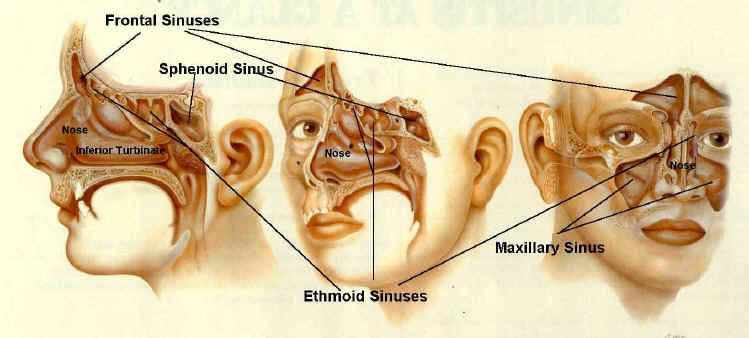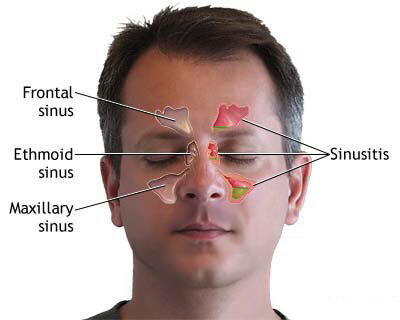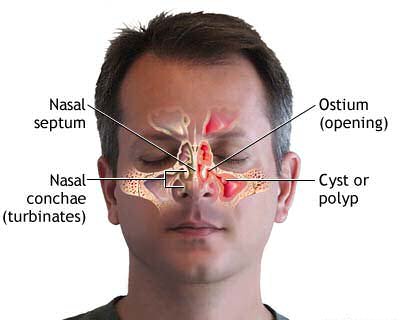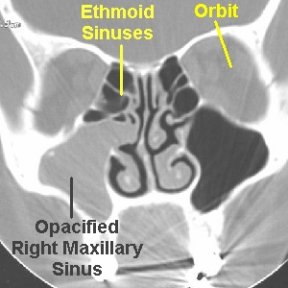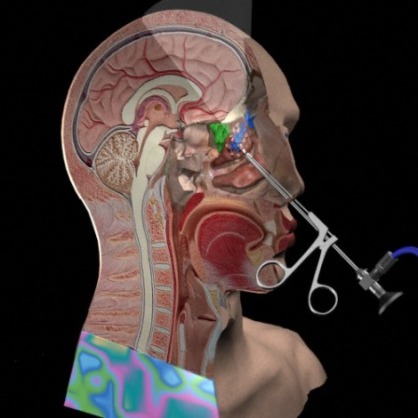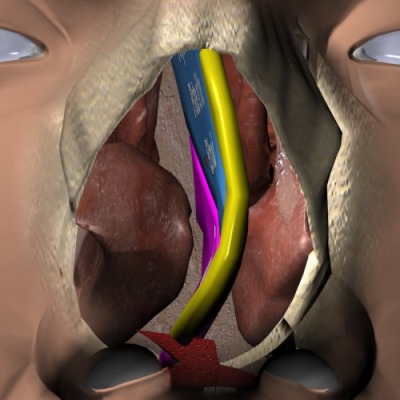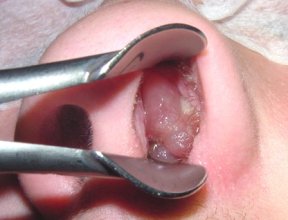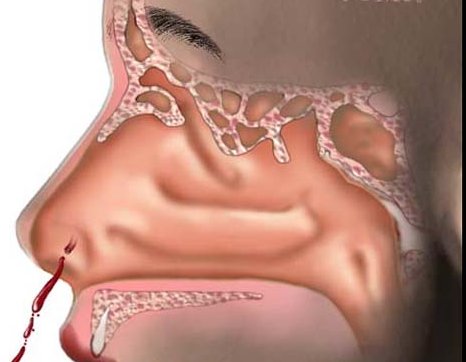What are some causes of acute sinusitis?
Most cases of acute sinusitis start with a common cold, which is caused by a virus. These viral colds do not cause symptoms of sinusitis, but they do inflame the sinuses. Both the cold and the sinus inflammation usually go away without treatment in 2 weeks. The inflammation, however, might explain why having a cold increases your likelihood of developing acute sinusitis. For example, your nose reacts to an invasion by viruses that cause infections such as the common cold or flu by producing mucus and sending white blood cells to the lining of the nose, which congest and swell the nasal passages.
When this swelling involves the adjacent mucous membranes of your sinuses, air and mucus are trapped behind the narrowed openings of the sinuses. When your sinus openings become too narrow, mucus cannot drain properly. This increase in mucus sets up prime conditions for bacteria to multiply.
Most healthy people harbor bacteria, such as Streptococcus pneumoniae and Haemophilus influenzae, in their upper respiratory tracts with no problems until the body's defenses are weakened or drainage from the sinuses is blocked by a cold or other viral infection. Thus, bacteria that may have been living harmlessly in your nose or throat can multiply and invade your sinuses, causing an acute sinus infection.
Sometimes, fungal infections can cause acute sinusitis. Although fungi are abundant in the environment, they usually are harmless to healthy people, indicating that the human body has a natural resistance to them. Fungi, such as Aspergillus, can cause serious illness in people whose immune systems are not functioning properly. Some people with fungal sinusitis have an allergic-type reaction to the fungi.
Chronic inflammation of the nasal passages also can lead to sinusitis. If you have allergic rhinitis or hay fever, you can develop episodes of acute sinusitis. Vasomotor rhinitis, caused by humidity, cold air, alcohol, perfumes, and other environmental conditions, also may be complicated by sinus infections.
Acute sinusitis is much more common in some people than in the general population. For example, sinusitis occurs more often in people who have reduced immune function (such as those with immune deficiency diseases or HIV infection) and with abnormality of mucus secretion or mucus movement (such as those with cystic fibrosis).
Posted on 9/10/2004 3:49:29 PM








